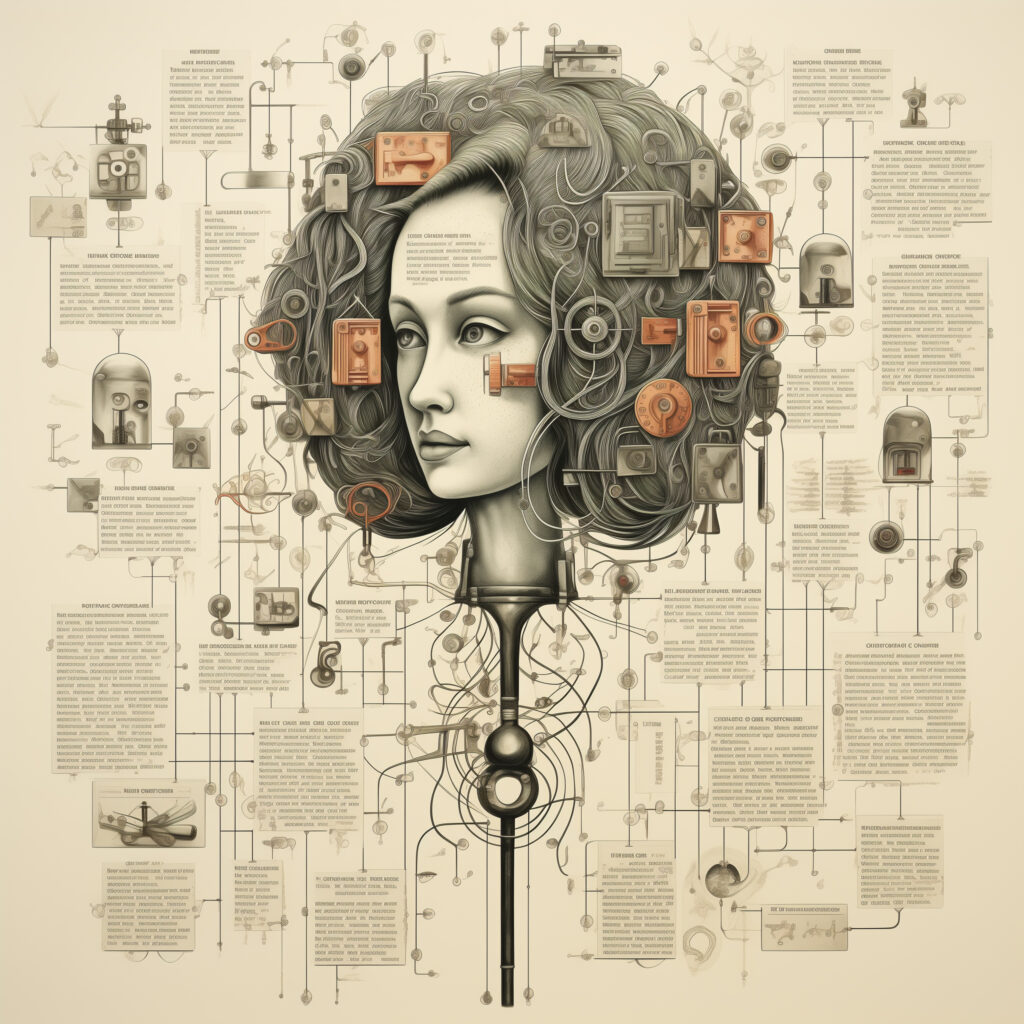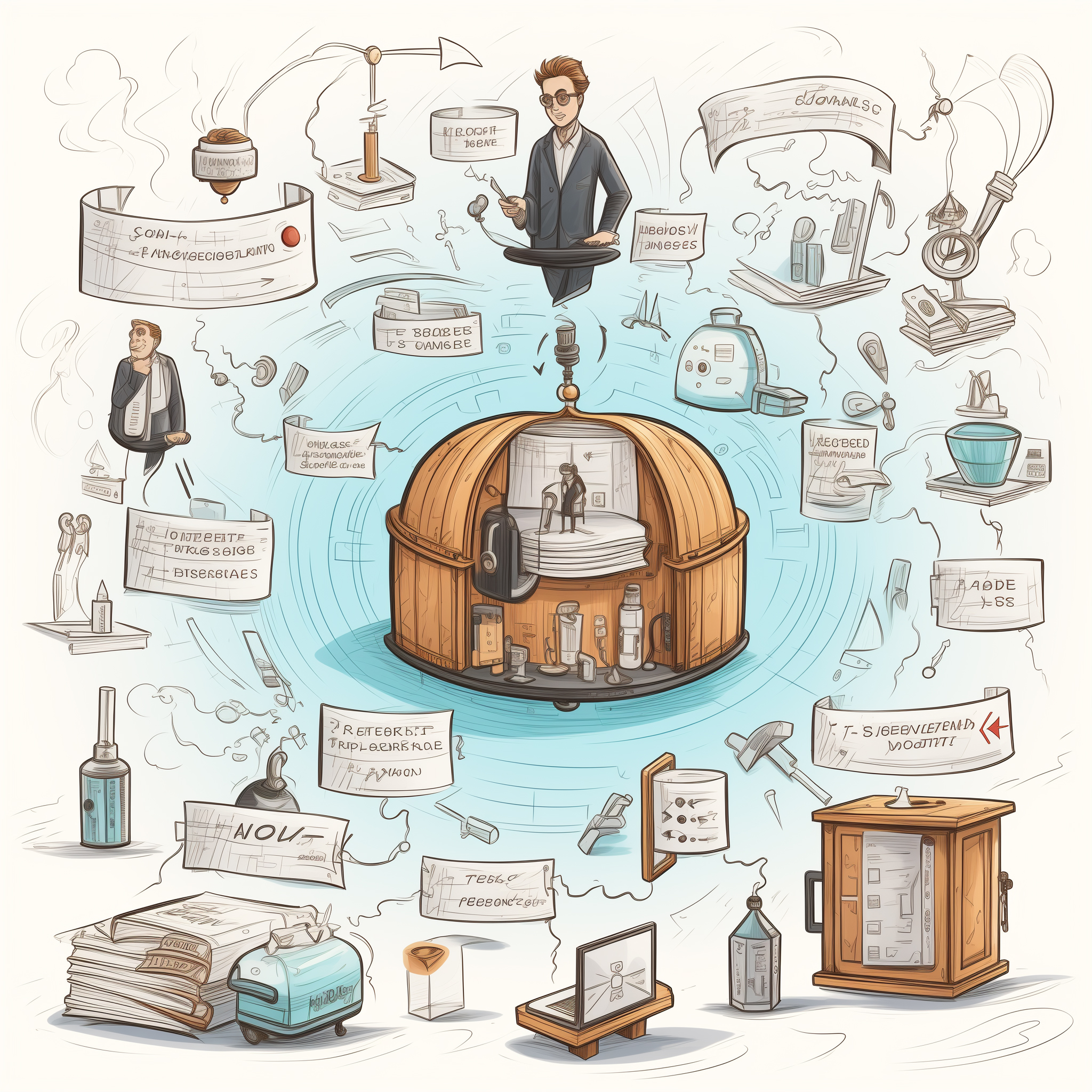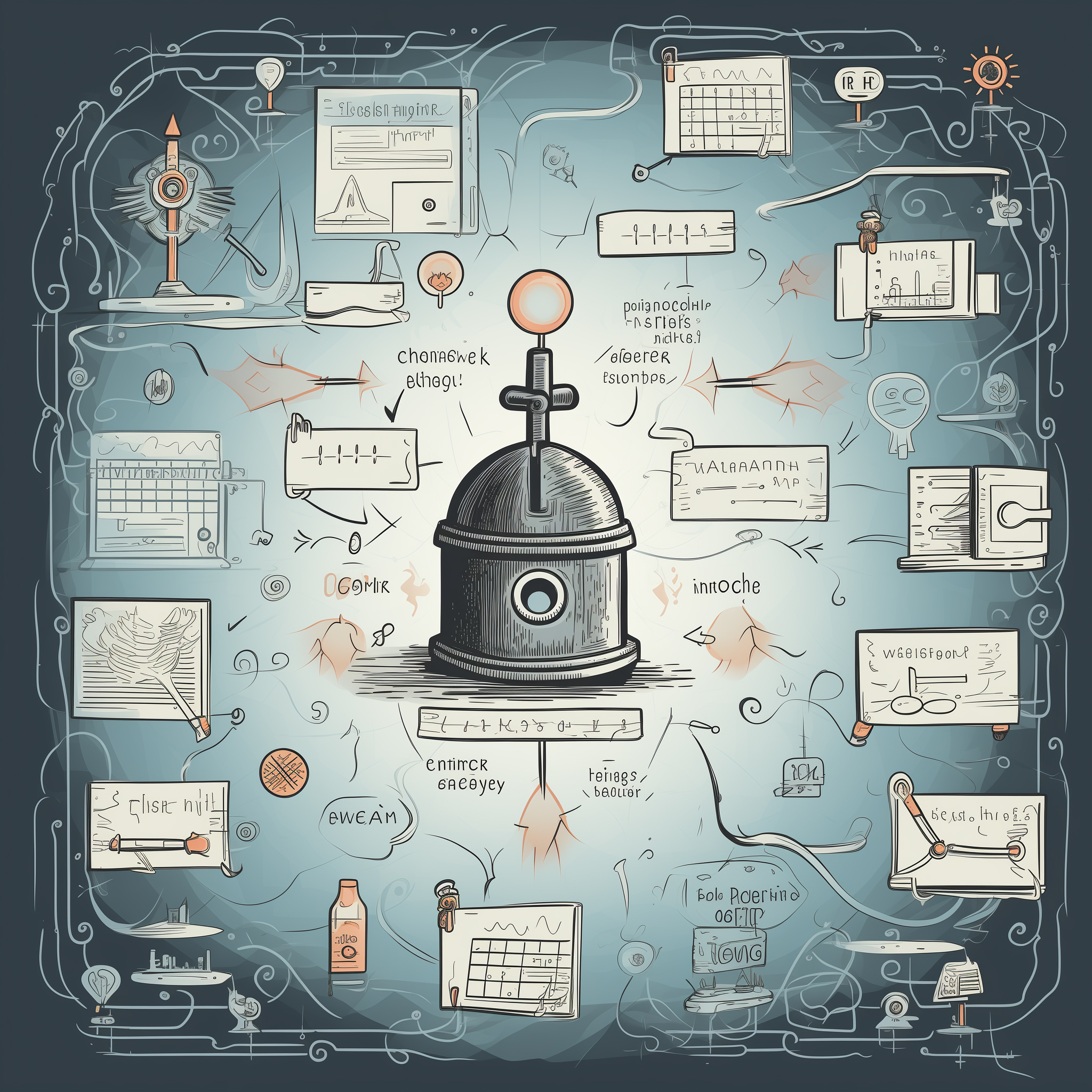Introduction
There’s a paradox of information today, whereby we have history’s at our fingertips whilst fumbling for our own data. There’s no search engine for our lives, our acquired knowledge and experiences. This constitutes our “Locked Knowledge Problem” and will inevitably give rise to what might be called the “Internet of Me (IoM)”. It’s an idea that might not only facilitate instant access to our data, thoughts and experiences but, more importantly, provide unforeseen and meaningful connections between them. Connections that we otherwise might not have been able to draw. Without help.
"There's no search engine for our lives, our acquired knowledge and experiences. This constitutes the "Locked Knowledge Problem..."

1. The Locked Knowledge Problem
The sum total of human understanding is now just an assumed resource.
Yet the bizarre reality is that whilst this is the case, the accumulation of our personal knowledge, our cognitive life’s work, is scattered (if we have been remotely diligent) between files, folders, PDFs, presentations, emails, notes or worse, if we haven’t digitally documented our exploits, within the withering annals of our grey matter.
This is becoming less of a “fun fact” and more “self-sabotage“. But this paradigm isn’t one we need not accept; we can’t afford to. There’s now a wealth of new technology, AI or otherwise, capable of helping us with this problem. We hear much about AI taking “our” jobs, but the reality is (at least for now) that not only is it not taking our jobs, it can exponentially help the ones we already have.
This does mean that fewer people do more. So AI will have a “thinning effect” on the workforce, allowing fewer people to do more because they’re harnessing AI and being more productive. So, if our peers are taking the initiative and harnessing this new tech, they’re gaining a decisive advantage over us across three main areas: (1) time and productivity, (2) cognitive load and creative efficiency and (3) creative connections, novelty and action. Furthermore, this advantage compounds each time we do not take the initiative and instead choose to play archaeologist to our long-lost knowledge.
The working world will grow more productive, competitive, and cognitive. Our critical thinking, the ability to advise and draw parallels rather than our ability to “do” or regurgitate already accessible information, will become the bellwethers of our success. The ability to instantly access and leverage our wealth of knowledge and experience. It will be our differences that will become our difference. Defining and nurturing that quality will be the enduring key to our success. Leveraging what makes us uniquely us to offer unique and unexpected perspectives is something AI cannot achieve and will become/is where success lies.
In Adam Grant’s NY Times Bestseller “Think Again, a debate was orchestrated between debater Harish Natarajan and IBM’s AI, Project Debater. The objective: to sway an audience on preschool funding, a cause supported by 90% of the audience. Natarajan was assigned to argue against, whilst Project Debater championed the cause.
Project Debater, drawing upon 400 million articles, presented data-centric arguments underlining the proposition’s importance. But that is all it was capable of doing.
Natarajan, however, employed strategic layering of his arguments, finding common ground on issues like poverty and limited opportunities. He then steered the dialogue by asking leading questions, showcasing a nuanced human ability that Project Debater’s programming couldn’t replicate. This approach fostered a more open, engaging dialogue, standing in stark contrast to the AI’s rigid, data-driven stance.
The result: the majority in favour dwindled to 60%, marking a 30% dip. This shift emphasised the potency of Natarajan’s nuanced abilities while simultaneously highlighting the limitations of AI in navigating the nuanced terrains of human discourse and persuasion.
Imagine if Natarajan could draw upon the same 400 million articles with zero latency. Obviously, we are far from that symbiotic point, but in the meantime, before we pop down to the clinic to update our Neuralink chips, how we capture, store and recall our experience will become increasingly important. And yes, that’s something we need to do.

2. The Internet of Me
Convenience and comfort are pillars of loyalty among discerning passengers and represent the opportunity to excel. Factors like location, procedures, layout, technology, experience and design play a role. Airports can leverage these to transform standard ‘procedures’ into superior ‘services’. Key areas include staffing, check-in, security, transfers and wayfinding. Airport experience design can epitomise excellence in PXD (physical experience design) by prioritising the traveller’s journey over airport process.The “Internet of Me” is not a thing or a group of things; it’s a system. Part methodology, part process, part repository. Yet, with the rise of AI and personal assistants increasingly built into everything, an IoM system is becoming not just a second brain but a dynamic digital companion. Allowing both the immediate recall of information whilst drawing unexpected parallels, assisting with interpretation and suggestion. Whilst this is all well and good, it would be an oversight to disregard the potential pitfalls.
I’m the type of person who goes out of my way to protect my data. I use Firefox with DuckDuckGo, avoid Google as much as possible, removed myself (mostly) from Facebook, and review and reject cookies on every site I visit. But when it comes to creating a Second/Dynamic Brain, I find myself wanting to feed the system as much information as possible so it might help me in ways I had never imagined.
People’s (and my) hesitation to do so lies with companies like Facebook and Google, who seemingly prefer to beg for forgiveness rather than seek approval when it comes to flogging our personal data to the highest bidder. Cases in point: the Cambridge Analytica-Facebook scandal [BBC – Facebook sued over Cambridge Analytica data scandal], Amazon’s hefty European Union fines[BBC – Amazon hit with $886m fine for alleged data law breach], or how Google just wants to monetise everything about you [Technology Review – How to poison the data that Big Tech uses to surveil you]. It’s the same with free apps and services. Obviously, nothing is truly free, so we pay with our personal data, which is then sold to nafarious third parties.
However, there are exceptions to the rule, primarily through paid services. Consider services like Dropbox, Notion, Evernote, Obsidian, Roam, New Computer and Glasp. They don’t need to sell our data because we pay them to store it. They’re now realising they have an unprecedented opportunity to do so much more than store our data by leveraging AI and the information contained within our files and folders.
New Computer [https://new.computer/] is releasing a host of software, including Dot [https://www.fastcompany.com/90975882/meet-dot-an-ai-companion-designed-by-an-apple-alum-here-to-help-you-live-your-best-life]. It collects bits of knowledge about you and your life, allowing for a more personalised experience and egging you on. Dropbox has rolled out Dropbox Dash and Dropbox Ai to turn static repositories data into dynamic assets.
The discourse around the IoM systems is not far-flung speculation. It’s here and now, changing how we interact with our information and increasing our efficiencies by an order of magnitude. The key to these branded services lies in a transparent transaction surrounding our data. The path forward comprises an explicit exchange of value for services, with monetary rather than data exchange at its core.

3. Personal Growth & Digital Mastery
The overarching IoM premise is simple: a personalised, dynamic repository of digital assets that constitute more than the sum of their parts: a dynamic digital companion. The aim is to aggregate our accumulated knowledge, pulling it from its disparate, dishevelled silos and to funnel it through AI in order to make sense of it all. Because if we had the time, we’d have done it already. But this is no free lunch, and like everything, though, you are what you eat. It’s what you make of it.
So, what exactly should we expect in return for the service fees, the effort and the pooling of our data?
"It will be our difference that will make the difference. Defining and nurturing that quality will be the enduring key to our personal and professional success."
HERE ARE THE TOP FIVE
- Personalised Knowledge Architecture: Create a cognitive experience index to organise, contextualise and make available all of your data.
- Ease Cognitive Bandwidth: Free up the mental load of remembering and instead focus on connecting disparate and seemingly unassociated pieces of data. Redirecting your cognitive resources to where they matter most: problem-solving, creativity, and innovation.
- Competitive Advantage: Freed cognitive load can provide the edge over unaugmented peers. You’re not just saving time; you’re amassing an arsenal of personalised tools.
- Personal Growth and Development: The compounding of the three points above will significantly add up and drive growth.
- Data personalisation: The Internet of Me will be the cornerstone for a new way of interacting with technology, shifting from a general utility to a personalised capability.
4. Summary
The “Locked Knowledge Problem” problem cannot only be solved; it might be one of the most significant opportunities AI offers us personally. Creating an IoM (of whatever it comes to be known as) system can provide the possibility to transform an opaque edifice of personal data into the dynamic source of potential it should be—unlocking a world where data is not just dormantly stored but is actively and dynamically coupled with advice.
That said, such a system is not a panacea for all cognitive woes, but neither is the spectre of Orwellian nightmares. Bright new futures certainly cast shadows, and we must be cognizant of where they fall. Historically, the price for convenience has been our privacy. The path forward must walk a different road from Facebook, Google and Cambridge Analytica, embracing a new paradim, one we must be prapared to pay for or accept there will be hidden fees.
The past year, six months even, has been unprecedented in technological progress, and we’ve all been swept up and amazed by it. Whilst we’re all aware of what is taking place, a gap has started to open up between those who have embraced and welcomed the change and those who haven’t, often disgruntled by the potential pitfalls or simply because they haven’t got around to learning. That’s a mistake. We must embrace these advancements as rapidly as they evolve, striving to capitalise on the potential they offer or risk being left behind, not by AI but by our peers. Those who are more technologically malleable or find the time. Whilst uncertainties will persist and shadows will be cast, the promise AI offers our personal and professional growth is undeniable and unprecedented.

